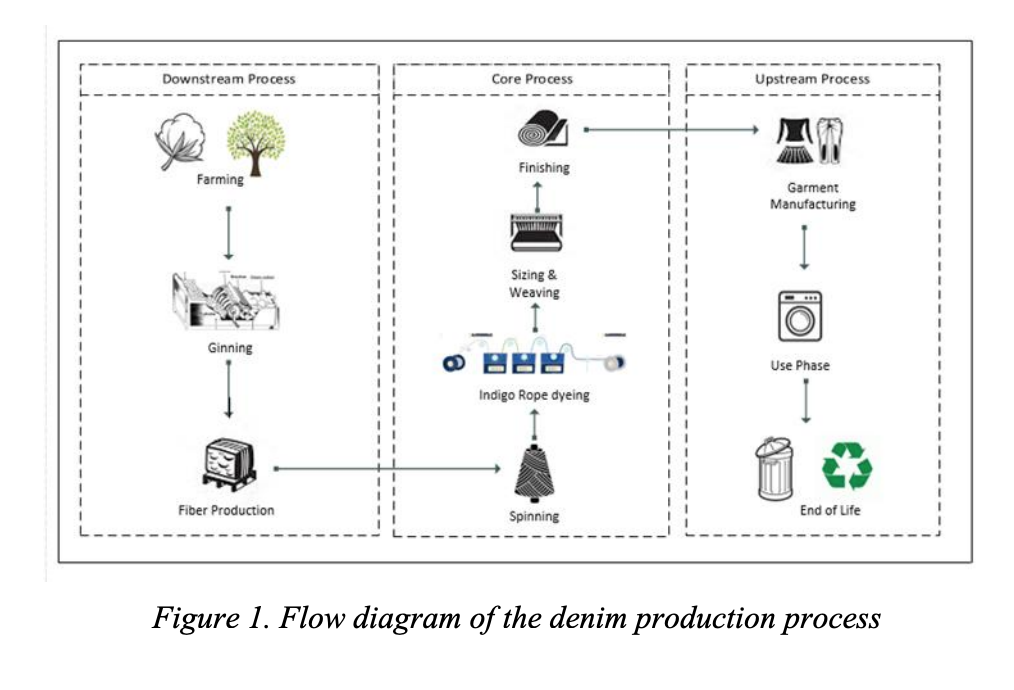Using organic cotton in denim production reduces global warming and ecotoxicity potentials
 A recent study presented at the EurAsia Waste Management Symposium found that when organic cotton is substituted for conventional cotton in denim production, 11 indicators of global warming, human health, and environmental health are improved. The main driver for the high environmental impact of conventional production was the use of pesticides and synthetic fertilizers. This study conducted a Life Cycle Assessment (LCA) to calculate the environmental impacts of denim fabric production from growing the cotton (cradle) through manufacturing the fabric, its usage, and through to its end of life and disposal (grave). The researchers evaluated 11 potential environmental factors: abiotic depletion, abiotic depletion fossil fuels, global warming, ozone layer depletion, human toxicity, fresh aquatic ecotoxicity , marine aquatic ecotoxicity, terrestrial ecotoxicity, photochemical oxidation, acidification, and eutrophication. The results showed that all environmental impacts of denim fabric production decreased with the use of organic cotton. Global warming potential (GWP) was reduced by 21% with organic denim production. Other factors to note were fresh aquatic ecotoxicity, which was reduced by 96%, terrestrial ecotoxicity which was reduced by 90%, and photochemical oxidation, which was reduced by 57%. Overall, largely because organic production does not rely on pesticides or use synthetic fertilizers, this study shows that using organic cotton as a raw material in clothing and other textile production has many significant environmental benefits.
A recent study presented at the EurAsia Waste Management Symposium found that when organic cotton is substituted for conventional cotton in denim production, 11 indicators of global warming, human health, and environmental health are improved. The main driver for the high environmental impact of conventional production was the use of pesticides and synthetic fertilizers. This study conducted a Life Cycle Assessment (LCA) to calculate the environmental impacts of denim fabric production from growing the cotton (cradle) through manufacturing the fabric, its usage, and through to its end of life and disposal (grave). The researchers evaluated 11 potential environmental factors: abiotic depletion, abiotic depletion fossil fuels, global warming, ozone layer depletion, human toxicity, fresh aquatic ecotoxicity , marine aquatic ecotoxicity, terrestrial ecotoxicity, photochemical oxidation, acidification, and eutrophication. The results showed that all environmental impacts of denim fabric production decreased with the use of organic cotton. Global warming potential (GWP) was reduced by 21% with organic denim production. Other factors to note were fresh aquatic ecotoxicity, which was reduced by 96%, terrestrial ecotoxicity which was reduced by 90%, and photochemical oxidation, which was reduced by 57%. Overall, largely because organic production does not rely on pesticides or use synthetic fertilizers, this study shows that using organic cotton as a raw material in clothing and other textile production has many significant environmental benefits.
Banner Photo Credit: Ergita Sela; unsplash.com


